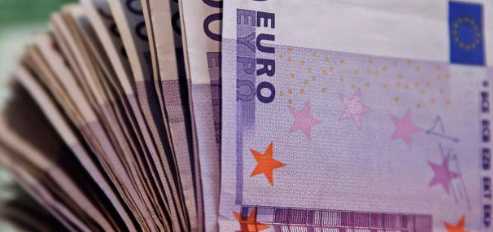Eurozone economic activity rose at the fastest pace in five months in February as Covid-19 containment measures were relaxed.
Business activity rebounded most sharply in France, where growth reached the highest since last June, while growth in Germany picked up to the fastest since last August.
The headline IHS Markit Eurozone Composite PMI surged 3.5 points in February — its largest monthly gain since March of last year — up from 52.3 in January to 55.8, to signal a sharp acceleration of economic growth, according to the preliminary ‘flash’ estimate.
The latest reading indicates the fastest rate of output growth since last September.
However, while an easing of supply delays helped to reduce raw material input cost inflation, persistent cost pressures caused by rising wages and energy bills led to the sharpest rise in average prices charged for goods and services in the PMI survey’s history.
“The acceleration in growth follows two months of subdued expansions as the rise in Covid-19 infections associated with the Omicron variant prompted an increase in virus containment measures,” said IHS Markit.
“February saw these restrictions ease to the lowest since November.
“The greatest improvement was seen in the service sector.
“Having almost stalled in January amid the tightened virus-fighting measures, service sector activity growth rebounded in February to the fastest since last November.
“Looser restrictions enabled a particularly strong rise in consumer-facing activity and travel and tourism.”
Manufacturing output growth also accelerated slightly, attaining the fastest expansion since last September, thanks in part to improved supply availability.
Demand also picked up during the month.
Overall, new orders rose to the greatest extent since last August, with six-month highs seen in both manufacturing and services, linked to easing supply constraints and the opening up of the economy.
The upturn in demand led to a steep rise in backlogs of uncompleted work, which showed the largest increase for six months.
Backlogs rose especially sharply in manufacturing, as the inflow of new orders exceeded the gain in production recorded during the month, though also rose at an increased rate in services.
Chris Williamson, Chief Business Economist at IHS Markit, said: “The eurozone economy regained momentum in February as an easing of virus-fighting restrictions led to renewed demand for many consumer services, such as travel, tourism and recreation, and helped alleviate supply bottlenecks.
“Business optimism in the outlook has likewise improved as companies look to the further reopening of the economy, encouraging increased hiring.
“However, although easing, supply constraints remain widespread and continue to cause rising backlogs of work.
“As such, demand has again outstripped supply, handing pricing power to producers and service providers.
“At the same time, soaring energy costs and rising wages have added to inflationary pressures, resulting in the largest rise in selling prices yet recorded in a quarter of a century of survey data history.
“The strength of the rebound in business activity signalled by the PMI provides welcome evidence that the economy has so far shown encouraging resilience in the face of the Omicron wave, but the intensification of inflationary pressures will add to speculation of an increasing hawkish stance at the ECB.”
